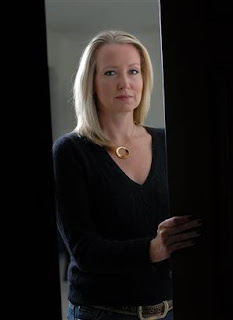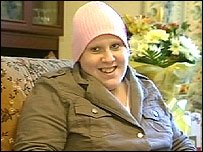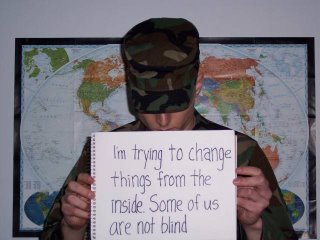
The following piece illustrates the cost of one person attempting apology without
mediation; access to mediators here.
"William Beebe had been haunted by that night for years.
He’d tried to send the letter before and failed. Just like he’d failed to stick with Alcoholics Anonymous. Just like he’d failed at so much in life.
This time, he was staying with the 12-step program. But should he really take that treacherous ninth step?
It told him to make amends to those he’d hurt unless doing so would injure them further.
Some had warned him to leave it alone. But he’d prayed on it.
And so, he began to write.
‘In 1984 I harmed you’, Mike Seccuro said, tossing an envelope onto his wife Liz’s lap as he climbed behind the wheel of their minivan.
Who lives in Vegas? she wondered briefly of the postmark before her eyes stopped on the sender’s name.
She froze. It was a name she had not uttered in 20 years. Her body suddenly felt cold, her brain fuzzy. With shaking hands, she opened the envelope.
Dear Elizabeth, the letter began. In 1984 I harmed you.
She wept.
In the minivan, Seccuro was crying so hard her frightened daughter had begun to wail.
I can scarcely begin to understand the degree to which, through your eyes,
my behavior has affected you in its wake, Beebe had written. Still, I stand prepared to hear from you about just how, and in what ways you’ve been affected, and to begin to set right the wrong I’ve done.
Over the next week, she felt afraid and vulnerable. Was her family in danger?
The questions finally overwhelmed her. She grabbed her BlackBerry.
How can you live with yourself? she typed.
He e-mailed back the next day.
I always felt tremendous guilt for the ways in which I imagined my conduct had damaged you, and for years too the only solution seemed to be the bottle, which worked less and less over time to assuage the guilt, he wrote. This is to say that the way that I lived with myself was of course not really living at all.
It appears I have laid the groundwork for a shattered life, and I simply do not know what to do, save for doing what you ask.
But Seccuro didn’t know what to do either. Yet she wondered: Why had he done what he’d done?
The only way to find out, she reasoned, was to write back. And so began a two-month e-mail correspondence. Seccuro told Beebe of the devastating effects of his actions; Beebe detailed the devastating effects of the bottle.
After that night in 1984, Seccuro was never the same. She reported the attack to university officials and campus police, she said, but immediately felt dismissed and disbelieved.
She became a loner. Her grades plummeted. At 22, she entered a tumultuous marriage that quickly unraveled.
Part of her felt dead. Panic attacks were frequent and frightening.
Gradually, life improved. She married Mike, gave birth to beautiful Ava, and found success as an event planner in Greenwich, Conneticutt.
But she never stopped wondering what had become of him.
His life, too, had been filled with miseries, he wrote. After that night, he was summoned to the dean’s office and told of possible judicial proceedings.
I was pinned by my failure as a person,he wrote. A day or so later I withdrew from the university, unwilling to "step up to the plate".
Even then, he wrote, his drinking was a problem. One afternoon, it hit him: Was he an alcoholic?
He entered rehab and moved home. A month later, he was drinking again. Over the next nine years, he wrote, he exhausted his parents, employers and friends. Women dismissed him as a drunken, selfish slob.
He arrived at AA in 1993, after years of trying to get sober in the fellowship, he wrote. This time, he stayed.
From the moment he read AA’s eighth step making a list of those he’d harmed he wanted to
contact Seccuro. But his sponsor said that would only hurt her.
As the years passed, Beebe wrote, his sponsor fell off the wagon. The man later told him he’d started drinking again over unfinished amends.
Beebe’s new sponsor told him to pray and search for Seccuro. Twice he wrote her, but the addresses were wrong and the letters returned. Eventually, he tried again.
Seccuro read Beebe’s e-mails with growing unease.
Was this apology meant to help her or him?Her skepticism grew when they broached the topic of what happened that night in 1984.
Were you my only attacker? she asked....
Beebe’s account, however, was disturbingly different from hers.
I ‘convinced’ you after what seemed like hesitation, that staying with me in my room upstairs was better than walking all the way back to the suites, he wrote. Of course, seeing opportunity to have a good time with you overrode any gentlemanly efforts to return you safely back to the dorms.
We started to make out in my room a while, he continued. There was no fight and it was all over in short order. When we awoke in the morning it was still chilly out, so I lent you my jean jacket, and you walked home.
There were no other men present. I was the only one.
There was certainly a fight that night, Seccuro responded angrily. She awoke wrapped in a bloody sheet, then walked to the emergency room.
I thought after all this time, you realized you had raped me and were apologizing, she wrote.
I trusted that your apology came from a good and honest place and I see this is not the case.
He had been drunk that night, he acknowledged, though not so drunk he couldn’t remember what happened. But he didn’t doubt her version.
I did not get to choose being raped and having my virginity taken from me so brutally,Seccuro wrote. Now, I don’t get to choose having this wound reopened.
And something else bothered her.
Why was he shying away from using the word rape?Beebe responded.
I want to make clear that I’m not intentionally minimizing the fact of having raped you, he wrote.
I did.Seccuro felt confused and drained.
A few days later, she stumbled across a Web site dedicated to victims of rape at the University of Virginia.
She was floored. The problem suddenly seemed bigger than her own.
Minutes later, she left a message with the Charlottesville police.
On Jan. 4, 2006, Beebe was arrested in Las Vegas.There is no statute of limitations on felonies in Virginia, and with Beebe’s written confession, it appeared to be an open and shut case.
Except Beebe, facing a sentence of life in prison, suddenly denied raping Seccuro.
She couldn’t believe it.
They were headed for trial.
Seccuro was in for another shock. She began receiving critical e-mails and letters, many from Christians condemning her for pressing charges, admonishing her to forgive.
But she HAD forgiven Beebe. Couldn’t she forgive and still want justice?
Her panic attacks returned. Some friends stopped calling. She suffered a miscarriage while nervously awaiting Beebe’s arrest.
Any leftover energy went to Ava, not her husband. Despite his efforts to understand, her experience remained alien to him.
It seemed Beebe was hurting her again.
And could she forgive him for that?
On April 17, Beebe was indicted on two felony counts: rape and object sexual penetration.
Seven months later, he stood before the judge.
Guilty as charged, he said calmly.
But he was pleading guilty to a lesser charge of aggravated sexual battery; the other charges had been dropped. The prosecution’s recommended sentence: two years in prison.
Why had they agreed to a plea?
Then the prosecutor dropped the bombshell: Investigators believed Seccuro was gang raped.
Seccuro had long suspected it. And prosecutors knew Beebe’s cooperation could be key in bringing other possible attackers to justice.
Outside the courthouse, Beebe finally spoke.
Twenty-two years ago, I harmed another person, he said. And I have tried to set that right.The investigation into the events of that night continues. Beebe’s cooperation with authorities will be a consideration when he is sentenced
March 15 2007. He remains free on bond and has been ordered to continue attending AA meetings.
Seccuro launched a donor fund called STARS Sisters Together Assisting Rape Survivors to raise money for rape victims and their families.
Some still tell her to accept Beebe’s apology and move on. Forgiveness, however, isn’t so simple, she says. She has forgiven Beebe for attacking her, and for disrupting her life. But she sometimes struggles to remain merciful."
On 15th March William Beebe was sentenced to 18 months of jail time yesterday for the aggravated sexual battery.
"In adopting a new way of life [through AA] I have a purpose and that gives life meaning," Beebe said.
The judge noted the complications of the case and the challenge "to balance all the factors."
"It is not a minor thing [Beebe's crime]; it's a horrific thing that she's been through," the judge said. "That fact that he came forward to admit his wrongdoing is admirable. I don't think the court system should discourage that."
He also emphasized that Beebe's punishment "should be on condition of significant community service," noting that part of Beebe's sentence is 500 hours of service dedicated to sexual assault education on college campuses, likely including the University's.
Seccuro spoke briefly after the hearing.
"I very much look forward to continuing my life," Seccuro said. "The past 18 months have obviously depleted me. My work as an advocate has just begun."
Seccuro also criticized the University's role in the case.
"Your silence is deafening. You should know the damage you have done," she said. "How many students will have to be embarrassed before you do something?"
She added she has forgiven Beebe but not the University for its lack of involvement in her case.
University spokesperson Carol Wood said Seccuro "is a courageous woman who is determined to see this through."(Court case report from
The Cavalier)
REFLECT HERE ON WHAT NEEDS AN APOLOGY WOULD OR WOULD NOT SERVELabels: 12 steps, Alcoholics Anonymous, apology, apology letter, Seccuro, William Beebe





















